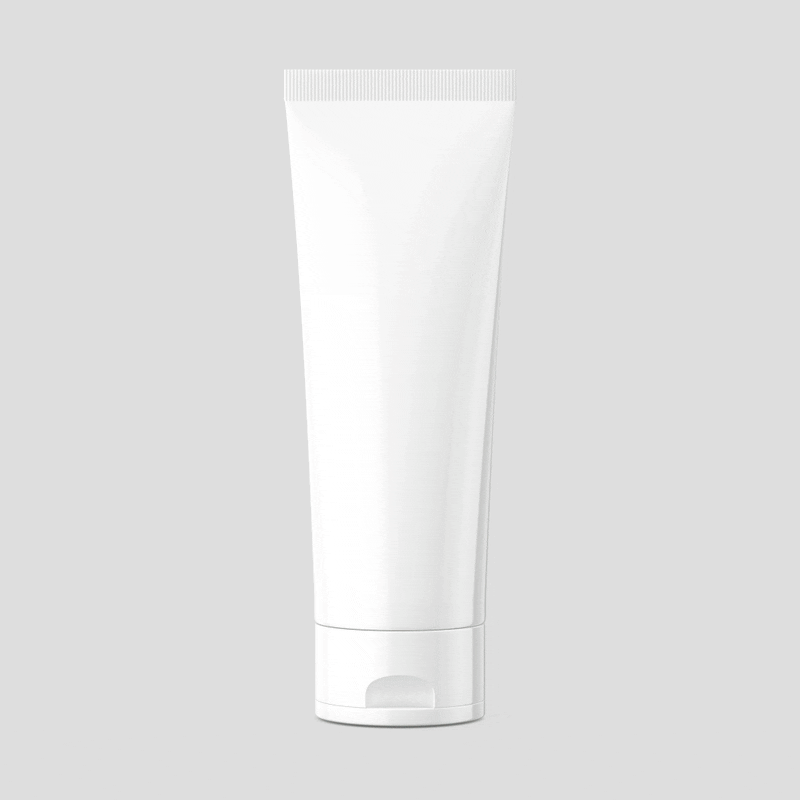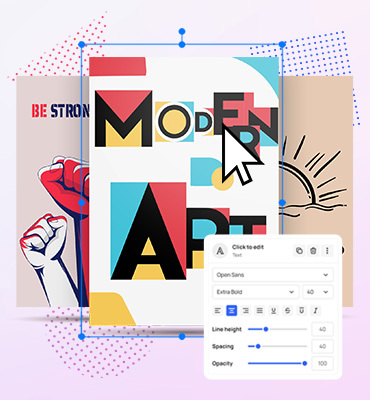How to Use Digital Product Mockups in Your Marketing Strategy

When it comes to digital product mockups and marketing, it’s natural to have questions. Is it worth paying for professional mockups? Can I use these images to promote my product? Better yet, what even is a product mockup?
To provide some clarity on the topic, we’ve compiled a list of 14 frequently asked questions that may be helpful.
1. What are mockups?
Mockups refer to digital or physical representations of a product that showcase its features, design, and functionality. They can be used in marketing materials such as ads, websites, and social media to give customers a better understanding of the product.
Utilized by designers, marketers, teachers, engineers, and more, mockups are a valuable asset. They are an excellent means to visualize what a design, device, or product that isn’t ready yet could look like in the real world.
2. What are product mockups, and how can they be used in marketing?
Product mockups are a more specific subcategory of mockups. They consist of digital or physical representations of a product meant to simulate how it looks in real life. Examples include industries such as apparel, print, tech, and packaging, where visual representation plays a crucial role in attracting customers and making informed purchasing decisions.
These mockups can be used in marketing to showcase the product’s features, design, and quality in a more visually appealing way, making it easier for customers to imagine themselves using the product.

3. What are the benefits of digital product mockups?
Digital product mockups can provide numerous benefits for businesses, such as improving product visualization, enhancing customer engagement, and increasing e-commerce sales. They can also help reduce production costs and time by allowing companies to identify and fix design issues before manufacturing.
In terms of marketing, digital mockups enable businesses to easily showcase different variations, color options, or packaging designs, giving customers a comprehensive view of the available choices. With the rise of e-commerce, digital product mockup generators have become valuable tools for quickly and easily creating professional-looking images without requiring extensive design or photography skills.
4. Why are mockups important in branding?
Mockups are important in branding because they allow businesses to create consistent visual identities and brand guidelines. Businesses can use mockups to showcase their products to reinforce their brand image and values. They showcase the physical appearance of products and provide an opportunity to incorporate branding elements, such as logos and colors.
By integrating these elements, businesses can create a consistent and unified visual identity that resonates with their target audience. This consistency across different touchpoints enhances brand recognition and fosters a sense of customer familiarity and trust. Thus, they make it easier for customers to identify and connect with their brand.

5. What are digital mockups in product management?
In product management, marketers use digital mockups to represent a product’s design and features visually. When developing initial versions of products, agencies providing MVP development services use them too to illustrate their vision for clients. Subsequently, they can then forward these images to stakeholders, including designers, developers, and customers. Digital mockups can help businesses identify and prioritize features, make design decisions, and ensure that the final product meets customer needs and expectations.
6. How do I create digital product mockups for my marketing strategy?
There are several ways to create product mockups, depending on the product type and the desired outcome. One popular option is an online mockup generator or software that allows you to upload your product design and create a mockup with different settings, backgrounds, and perspectives.
An example of such a tool is Mediamodifier, our user-friendly platform that offers a seamless and intuitive experience, allowing you to upload your product design and generate stunning images quickly. With our generator, you can access a vast library of thousands of mockups, templates, backgrounds, and perspectives, enabling you to customize your mockups to perfection.
On the other hand, if you prefer a more tailored approach or have specific requirements, you can also request a custom mockup. However, if you don’t want to deal with this process at all, you can consider hiring a professional designer to create your product mockups.
7. Can I use free product mockups in my marketing campaigns?
Yes, plenty of free product mockups are available online that you can use in your marketing campaigns. However, you should always check the licensing and usage rights before downloading or using any mockup, as some may require attribution or have other restrictions.
For safety, you can always use a professional mockup library. Mediamodifier offers comprehensive commercial licenses with all our plans, including the free Starter plan. This means you can use our mockups, templates, and other creations without any restrictions for your digital marketing needs. Moreover, our platform ensures that every image featuring a real person includes a model release, saving you the time and expense of hiring models yourself.

8. How do I choose the right product mockup for my marketing strategy?
When choosing a mockup for your marketing strategy, it’s essential to consider the design of your product, your target audience, and how you intend to use the mockup. The mockup should align with your product’s visual elements, colors, and branding, ensuring consistency and cohesive brand identity.
Moreover, take into account the preferences of your audience. Consider the context in which your product will be used and choose a mockup that reflects that setting. This helps potential customers envision how the product fits into their lives, making it more relatable and desirable.
9. What are the best practices for using digital product mockups in my marketing materials?
To make the most of digital mockups in your marketing, ensure they are high-quality, accurate, and consistent with the product. It would be best if you also considered using multiple mockups in different settings or scenarios to showcase other aspects of the product.
Make sure to incorporate your brand’s visual identity into the mockups. Add your logo, color scheme, typography, and other branding elements to reinforce your brand across all marketing materials.
Additionally, don’t be afraid to test different mockups and gather feedback from your audience. You should continuously refine your mockup choices based on customer insights to ensure they effectively convey your message. To enhance your marketing strategy further using product mockups, consider the benefits of a robust digital asset management tool, which can streamline your creative processes and asset organization.
10. How can I optimize my digital product mockup for search engines?
To optimize your digital product mockup for search engines, use descriptive filenames, alt tags, and captions that include relevant keywords and phrases. This helps search engines understand the content and context of your digital mockup.
Moreover, consider optimizing the file size of your mockups. This will improve loading speed and website performance, as search engines favor fast-loading pages. Lastly, ensure your website and mockups are mobile-friendly and responsive, as mobile optimization is crucial for reaching a wider audience.
Another important step when it comes to improving your website’s overall performance is ensuring its security. For example, this can be done by using Windows 11 VPS hosting, which will allow you to keep servers secure and have greater control over hosting.
11. What are some creative ways to use digital product mockups in my marketing strategy?
In addition to using product mockups on your website or social media channels, you can also use them in email marketing campaigns, digital ads, and product packaging. You may also consider creating 3D digital mockups or interactive product demos to showcase the product’s features and functionality.
Incorporating digital product mockups into your marketing channels can help captivate your audience and increase click-through rates. Furthermore, you can use product mockups in your printed marketing materials such as brochures, flyers, or catalogs. This allows potential customers to see how your product will look in real-life scenarios.

12. How do I measure the effectiveness of my digital product mockups in my marketing strategy?
To measure the effectiveness of your digital product mockups in your marketing strategy, you can track metrics such as click-through rates, conversion rates, and engagement rates. Moreover, you can also conduct customer surveys or focus groups to gather feedback on the mockups’ impact on their purchasing decisions. The best way to start is with some ready-to-use survey templates.
13. Can digital product mockups help me increase my conversion rates?
Yes, using product mockups in your marketing materials can help boost conversion rates by providing customers with a better understanding of the product’s features, design, and quality. In addition, they can also help build customer trust and credibility, leading to increased sales and customer loyalty.
14. Are product mockups suitable for all types of products and industries?
Yes, you can use product mockups in any industry and for any product, from consumer goods to digital products and 3PL warehouse management services. However, you should always consider the product’s design and features and ensure the mockup accurately represents them. This attention to detail will help create a cohesive and authentic brand experience, building trust and credibility with your audience.
In conclusion, digital product mockups are versatile tools applicable across various industries and product types. Whether it’s consumer goods or digital services, mockups can effectively showcase design and features. However, you need to select a mockup that faithfully represents the product’s appearance and functionality to get the best results. Doing so allows you to confidently present your product and captivate your clients with accurate visual representations.
Ready to transform your visuals and captivate your audience? Try MediaModifier’s intuitive mockup generator today to create custom, professional-grade mockups in minutes.
Frequently Asked Questions regarding digital product mockups
What are digital product mockups?
Digital product mockups are realistic visual representations of products shown in real-world contexts to help audiences visualize them.
Why use digital product mockups?
They improve product presentation, boost engagement, save time versus traditional photo shoots, and help showcase variations.
How do I make digital product mockups?
Use online tools like MediaModifier, work with a designer, or find free/licensed templates—just check usage rights.
How should I optimize mockups for SEO?
Use relevant keywords in filenames, alt tags, and captions; compress images for speed; ensure mobile-responsiveness.
Related articles
Visualize your design Use a product mockup to showcase your design

Create your design Use our templates to create delightful designs for any medium




